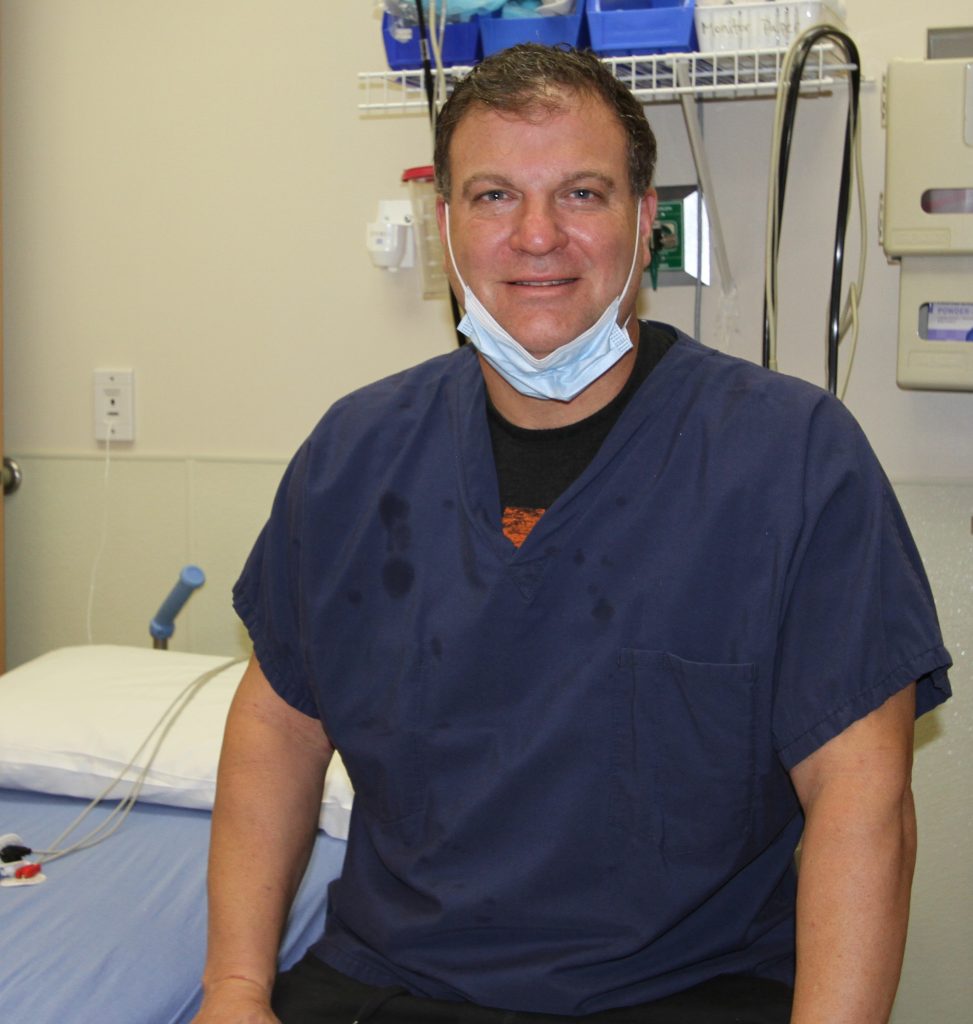![07news-health2 [lead - horiz]](https://chico.newsreview.com/wp-content/uploads/2022/01/07news-health2-lead-horiz-678x381.jpg)
Sometimes lost in the conversation about COVID-19 infections and ICU capacities is the impact the pandemic has had on our collective mental health. For this special Health Issue, the CN&R reports on the help that is available to address the issue—from counseling and other county programs to new psychedelic therapies.
Alexandra Kriz felt she had to do something. As the pandemic dragged into its second year, the Chicoan found her community in the throes of a mental health crisis triggered by a string of countywide traumas—from the Oroville Dam spillway disaster to deadly wildfires—exacerbated by coronavirus restrictions in an area where residents already grapple with effects of state-leading levels of adverse childhood experiences (or ACEs).
She found herself particularly concerned after reading about a rise in suicides and suicidal thoughts in young people (see “Kids in crisis,” News, March 9, 2021)—including students (and a teacher) at Chico High.
Kriz, who battled post-traumatic stress after serving in the U.S. Army, told the CN&R she’s been “screaming from the rooftops” since the Camp Fire “that we need to have a comprehensive solution to treat mass-scale trauma in our community. As a veteran who was sexually assaulted, I know what it feels like to live with untreated trauma and the chaos it brings, the suffering and the fallout that inevitably occurs when you’re living in that space.
“One of the factors in that [comprehensive solution] was using psychedelic therapy because of its efficacy in treating things such as treatment-resistant depression, PTSD, anxiety [and] suicidal ideation.”
The psychedelic therapy in question involves the use of ketamine. Though stigmatized by its use as a recreational drug, it has a long history as an anesthetic and ranks among the World Health Organization’s essential medicines. Medical practitioners have expanded the administration of ketamine to alleviate pain as well address opiate addiction and psychiatric conditions, with studies confirming effectiveness and safety.
Kriz and her partner, vibrational-sound therapist Jesse Spallina, teamed up with an integrative medicine physician from the Bay Area, Dr. Daniel Rieders, to offer ketamine injections in Chico. The result is Phoenix Nest Community Project, a nonprofit collaborative opened last year and encompassing a range of holistic healing.
Concurrently, local medical practice Interventional Pain Solutions—which has provided ketamine infusions to pain patients for years—broadened its therapeutic scope and launched Norcal Ketamine Infusion Centers.
Situated on the ground floor of an office complex on Humboldt Road, Phoenix Nest’s facility features a handful of therapy rooms, each distinctly decorated. Clients choose whichever feels most comfortable. The setting matters because of ketamine’s psychoactive properties. Staff include Dr. R. Carter Clements, an emergency physician who commutes from Orinda to work for the clinic; registered nurse Lori Moreno; and Kriz, who’s completing her Ph.D. in clinical psychology.
“We refer to our center as a sacred space with clinical safety,” Kriz said. “Our approach to things, rather than making it about the medicine, is making it about the human connection and the experience that comes along with the use of the medicine.”
The practitioners behind Interventional Pain Solutions recognize the same thing. That’s why they’ve created a separate setup via Norcal Ketamine Infusion Centers, which will grow beyond the single Chico location on East Avenue to Redding and Lincoln, other cities served by the pain-management practice. As at Phoenix Nest, the infusion center features quiet rooms where patients listen to music and relax during treatments.

“We’ve had really good results with the ketamine for refractory depression [i.e., resistant to treatment], PTSD, obviously chronic pain,” said Dr. Zachary Lipman, an anesthesiologist and pain medicine specialist with the practice. “Therapies don’t work for everybody. So when you have something that’s new and different that somebody hasn’t tried, I think there’s a big need for it.”
Proven treatment
Ketamine dates to the 1960s as an anesthetic for animals that the U.S. Food and Drug Administration approved for human use in 1970. It’s particularly safe because, at proper dosages, it doesn’t slow the heart or breathing—unlike other anesthetics—but ketamine does create a dissociative experience that led the federal government to classify it as a controlled substance.
It works in the brain on opiate receptors as well as receptors for glutamate, a chemical through which neurons communicate. Research released by the National Institutes of Health has validated the efficacy of
ketamine for not just anesthesia or pain but also PTSD and severe depression.
“The data on that is really profoundly positive,” Clements told the CN&R by phone in reference to ketamine’s antidepressive properties. “You won’t necessarily cure their depression, but you’ll cure their suicidality with a single treatment—which, when you think about it, is just amazing, because there aren’t a lot of therapies in medicine that work that well with a single dose.”
Whether by injection at Phoenix Nest or infusion at Norcal, the regimen may require one, a few or a handful of treatments, with an additional dose after several months. A session at Phoenix Nest incorporates pre- and post-treatment counseling, runs 90 minutes to two hours and costs $600—though the nonprofit has a sliding scale based on income. Norcal is cash pay, too, at $400 per 40-minute treatment.
“There’s a stigma,” Lipman said, referring to recreational use of the drug nicknamed Special K. “[An anesthetic like] Propofol, in the hands of the wrong person, can kill Michael Jackson [for example]; you have to be careful with any anesthetic. But in the hands of a professional, [ketamine is] a very effective medication for these uses.”
Clements agreed. He joined Phoenix Nest because of the need he—like Kriz—saw locally to address trauma. He currently works two days a week in Chico but next month will increase his commitment to three.
“I think that the use of ketamine to crack the shell on problems that can otherwise be very difficult to get the patient to open up about is groundbreaking,” he said. “It’s a revolution in psychiatric and psychologic care.”
Ketamine therapy in Chico:
Phoenix Nest Community Project: 1459 Humboldt Rd., Ste. A, phoenixnestproject.com
Norcal Ketamine Infusion Centers: 647 W. East Ave., norcalpaindocs.com




This is a beautiful facility and I am glad that thoughtful, dedicated people like Jesse and Alex have contributed this new healing center to the community. There is certainly a profound need for nourishing mental health centers in this county, and I hope they are able to serve many people.
A note: Therapeutic Solutions (another local mental health provider) is also providing Ketamine treatment through their practice.